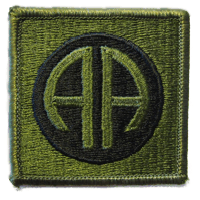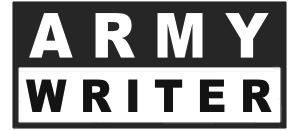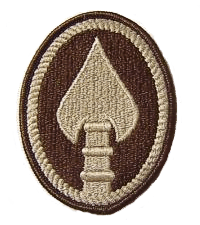The Non-Commissioned Officer Evaluation Report (NCOER)
It's an unfortunate fact of Army life that no matter how hard you work or how many hours you put in, your accomplishments won't be recognized unless they can be accurately represented by the words contained on a single sheet of paper: your NCOER.
Evaluation reports are among the most important documents you're likely to encounter during your military career. That single sheet of paper affects your chances for promotion, your assignment options, training opportunities, and your entire future in the military. No other document has as much effect on your career or your life. So it only makes sense that we should take the time to do a good job on our and our troops' NCOER. If you're the ratee, make sure that if your supervisor asks for input or bullet comments for your NCOER that you provide as much as you can. Providing material for your NCOER is not doing your supervisor's job. It's an opportunity to have some influence on your rating! It's like your supervisor handed you a blank check and said, fill in whatever you want! Because NCOERs have a lot of weight in determining whether you get promoted or not. And a promotion means a raise of thousands of dollars a year! I don't know about you but I could definitely use the money! So when my supervisor gives me a chance to have some input on my evaluation, I'm taking it!
A lot of people have a hard time coming up with input for their NCOER. It's hard to express in just a few words all the ways you've contributed to the mission. And knowing how important the NCOER is to your future and reaching your goals makes it even harder. To help in this difficult task, we've assembled a collection of NCOER examples, duty descriptions, and NCOER bullet comments. More...
Army Counseling
In the Army, counseling is an almost daily requirement. Whether it's meant to guide a Soldier's growth, document career milestones, or correct improper behavior, it can be a challenge to find the words to adequately describe a Soldier's performance and potential. There are three broad types of counseling that we encounter on a day to day basis: Performance Counseling, Event-Oriented Counseling, and Professional Growth.
Performance counseling (also known as developmental counseling) is the type of routine, periodic counseling provided by the supervisor to his Soldiers. Soldiers (E-4 and below) should receive counseling monthly and it is normally documented on DA Form 4856 but other formats are allowed for the initial counseling. NCOs (E-5 and above) normally receive counseling quarterly unless their conduct requires it more frequently. NCO counseling is normally documented on DA Form 2166-8-1 but other formats are allowed for the initial counseling. More...
Event-oriented counseling is counseling that is required due to a specific event or situation. It may precede events, such as preparing a Soldier to go to a promotion board or attend a school, or it may follow events, such as noteworthy duty performance, a problem with performance, or a personal problem. Examples of event-oriented counseling are counselings for instances of superior or substandard performance, reception and integration counseling, crisis counseling, referral counseling, promotion counseling, and separation counseling. More...
Professional Growth counseling is subordinate-centered counseling that outlines actions necessary for Soldiers to advance in their MOS and achieve individual goals and objectives. In order for our Soldiers to be competitive for promotion, it is critical that NCOs provide professional growth counseling to their Soldiers. Examples of this kind of counseling are briefings on requirments for advancement in a person's MOS and preparation for rank-specific schools. More...
Army Awards and Decorations

Submitting someone for a medal is one of the most satisfying things a supervisor can do. The results are so positive that it's almost magic. Not only do you get to express your appreciation for someone who deserves it, the person who was recommended is even happier than you. They're ecstatic that someone recognized their efforts and took the time to make the recommendation. And the promotion points are an added bonus. And, recommending someone for an award makes you look good. It demonstrates to the Commander that you're taking care of your troops. And finally, the Commander is happy, both with you for being a top-notch NCO and about being able to hand out an award. Commanders love to present awards. It makes them look good and they're happy to have an opportunity to show their appreciation for their troops. The judicious award of medals is good for morale all around.
The Army Achievement Medal, the Army Commendation Medal, and the Meritorious Service Medal are probably the most commonly submitted and awarded decorations in the Army. The Army has streamlined the process over the last few years and it's easier than ever to submit someone for a medal.
If you've never submitted someone for a decoration before it might seem complicated but it's not really that hard. All awards follow a prescribed format which is outlined in the applicable reg (AR 600-8-22, Military Awards). All that needs to be done is to fill in the details. But sometimes it's hard to get your thoughts flowing, to accurately convey what you want to say. That's where we come in. We're in the process of collecting awards and decoration examples to make the job easier. So far, we have basic instructions for preparing the most commonly awarded medals and quite a few examples of properly written citations. More...





